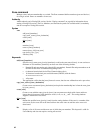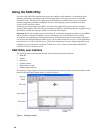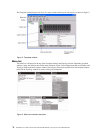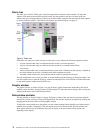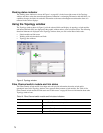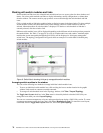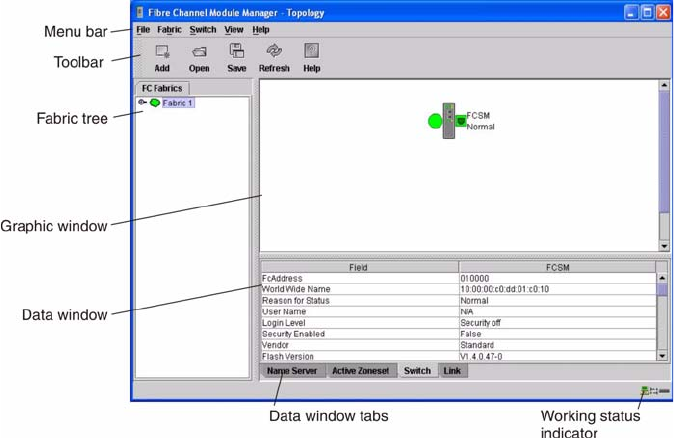
69
Using the SAN Utility
You can use the SAN Utility application to access and configure switch modules. For information about
installing, uninstalling, and starting the SAN Utility application, see the Fibre Channel Switch Module
Installation Guide. The SAN Utility application can be installed on an SBCE blade server or an external
network management workstation configured with one of the operating systems described in the Fibre
Channel Switch Installation Guide.
To manage your switch modules and fabrics, the SAN Utility application provides two basic windows:
Topology and Faceplate. The SAN Utility user interface, its elements, and the tasks that you can perform from
the Faceplate window and Topology window are described in this chapter.
Important: Before you configure your switch module, be sure that the management modules in your SBCE
®
unit are properly configured. In addition, to access and manage your switch module from an external
environment, you might need to enable certain features, such as the external ports and external management
over all ports. See the applicable Intel
®
Blade Server Chassis SBCE Installation and User’s Guide publications
on the Intel
®
Server Chassis SBCE Resource CD for more information. For more detailed information about
configuring your switch module, see the Intel
®
Blade Server Fibre Channel Switch Module SBCEFCSW
Installation Guide on the Resource CD.
SAN Utility user interface
The Topology window and Faceplate window share the following common elements:
• Menu bar
•Toolbar
• Fabric tree
•Graphic window
• Data window and tabs
• Working Status indicator
The Topology window displays all of the switch modules that are enabled and the connections between switch
modules and other Fibre Channel devices, as shown in Figure 1.
Figure 1. Topology window



